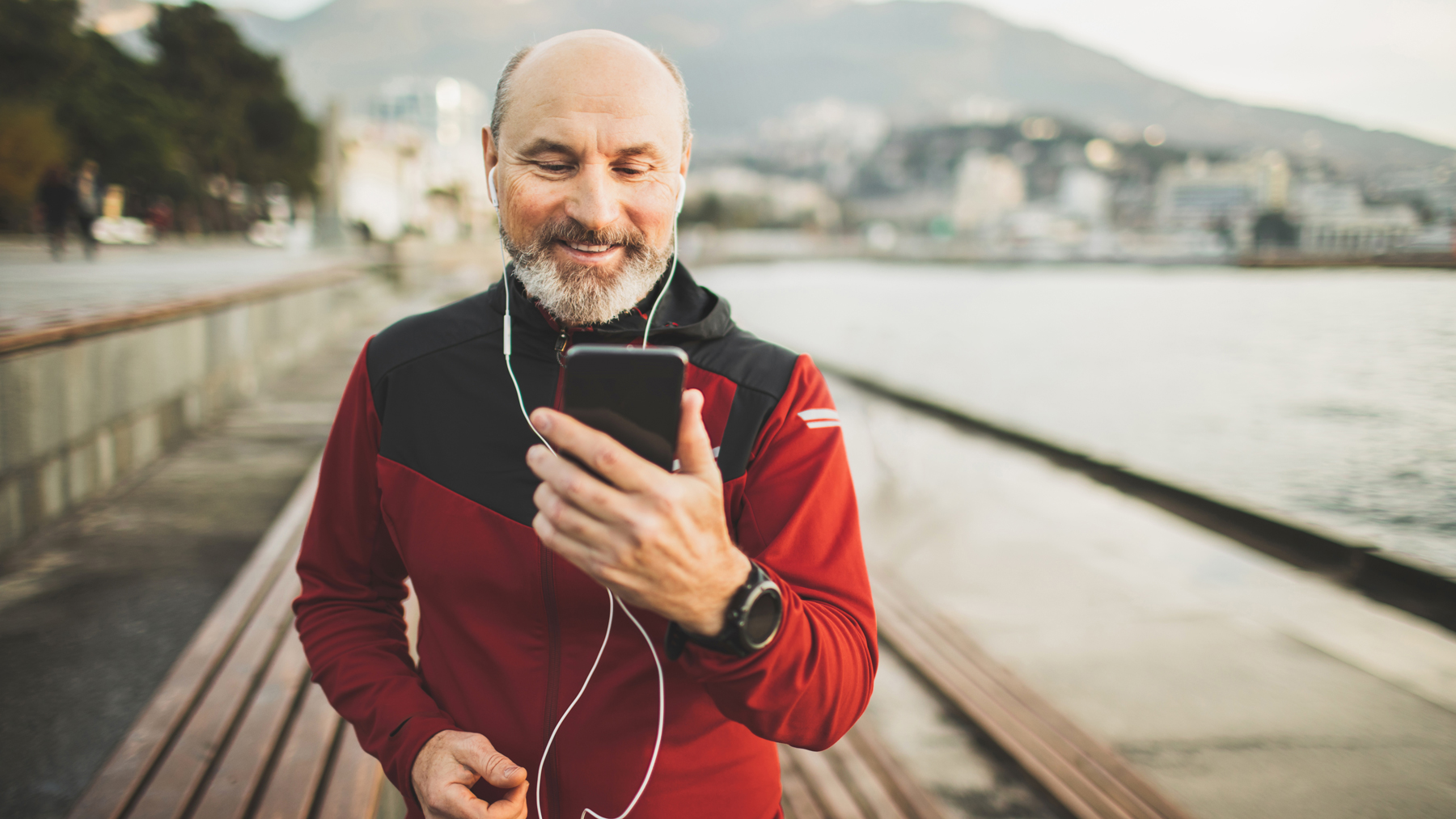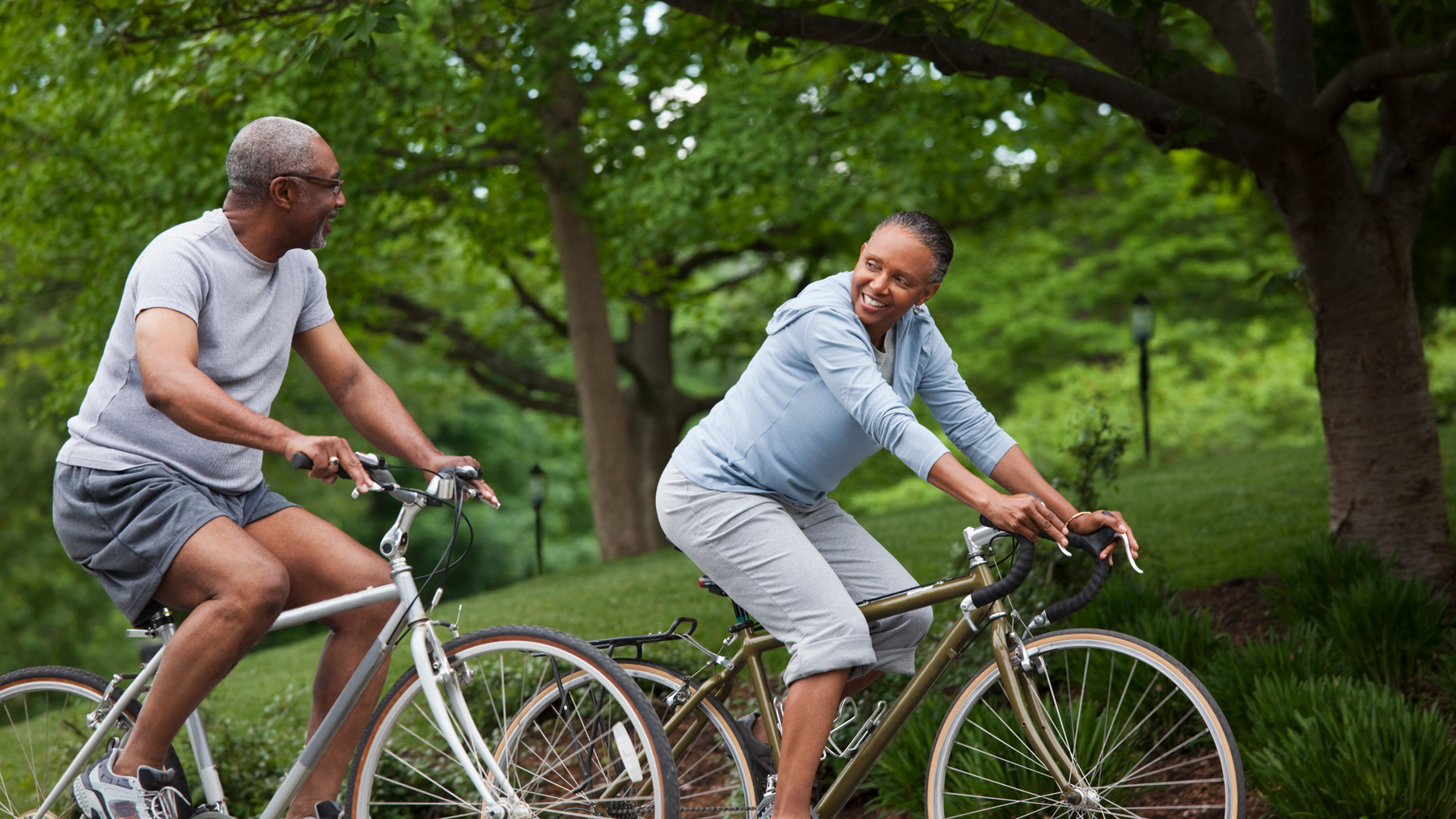Regular exercise now can help avoid age-related muscle loss later in life, research finds
Turning exercise into a hobby as an adult is a helpful way to prevent muscle loss and dysfunction when you are older


Start your week with achievable workout ideas, health tips and wellbeing advice in your inbox.
You are now subscribed
Your newsletter sign-up was successful
Loss of muscle mass is very common among older people and this loss of strength can make daily tasks and activities a lot harder than they used to feel. However, recent scientific research has revealed how adults can help to promote healthier aging muscles for their older selves, and it's all in the power of 'lifelong exercise'.
Your volume and intensity of training will fluctuate as you age and this looks different for everyone. No matter what your fitness abilities are, it's important you find something you enjoy doing. This might be a forty-minute pedal session on one of the best exercise bikes or it could be some mobility and strength building using some of the best resistance bands.
According to a recent study published in The Journal of Physiology, adults who kept physically active throughout their life had healthier aging muscles later in life. Their muscles were said to have 'superior function' and be more resistant to fatigue. This was compared to both younger and older inactive adults.
The scientists revealed that the adults who had stayed physically active during their adult life had a greater number of muscle stem cells. These cells are key when it comes to muscle regeneration and long-term growth, plus they protect against nerve decay. The types of exercise mentioned in the study ranged from resistance training, ball games, swimming, racket sports, cycling, running, and rowing.

The researchers from the University of Copenhagen recruited a group of adult males and divided them into three groups: young sedentary, elderly lifelong exercise and elderly sedentary. Each group had to perform a heavy resistance exercise, during which the scientists would measure the amount of force produced. Afterward, blood samples were taken and muscle biopsies were analyzed. The final results revealed that the 'elderly lifelong exercisers' outperformed the elderly and young sedentary adults.
The lead author of the study and PhD student at the university, Casper Soendenbroe, said, "The single most important message from this study, is that even a little exercise seems to go a long way, when it comes to protecting against the age-related decline in muscle function."
The study places an emphasis on adults taking part in 'recreational' exercise throughout adulthood to build healthier aging muscles, which is really encouraging as no one wants to do exercise they don't enjoy. Make things easier for yourself and find a form of workout that you feel good doing.
Start your week with achievable workout ideas, health tips and wellbeing advice in your inbox.
If you prefer low-impact movement then training on one of the best rowing machines is a great way to increase your fitness and develop strength all over. Or if you like training with some form of resistance why not incorporate some of the best adjustable dumbbells into your fitness regime. These are a great option of weights for all abilities as you can adjust the size of weight as you workout and won't have to buy a whole rack of individual sized dumbbells.
No matter what our age is we should always try and consume plenty of protein. This is especially important for any aging adult worrying about losing muscle mass. If your meals lack substantial sources of protein you can always mix in one of the best protein powders to a smoothie.
Jessica is an experienced fitness writer with a passion for running. Her career in journalism began in local news and she holds a Masters in journalism. Jessica has previously written for Runners World, penning news and features on fitness, sportswear and nutrition.
When she isn't writing up news and features for Fit&Well covering topics ranging from muscle building, to yoga, to female health and so on, she will be outdoors somewhere, testing out the latest fitness equipment and accessories to help others find top products for their own fitness journeys. Her testing pairs up nicely with her love for running. She recently branched out to running 10Ks and is trying to improve her time before moving on to larger races. Jessica also enjoys building on her strength in the gym and is a believer in health and wellness beginning in the kitchen. She shares all of this on her running Instagram account @jessrunshere which she uses for accountability and for connecting with like-minded fitness lovers.
